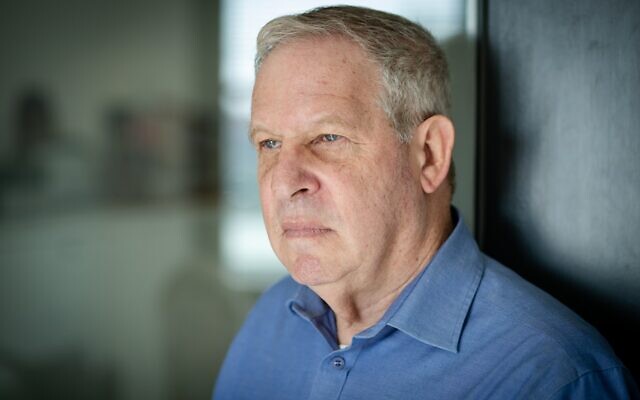The Israel Defense Forces’ claim that it has achieved full control over Gaza’s southernmost city of Rafah has garnered fierce pushback from several hard-right members of the powerful Knesset Foreign Affairs and Defense Committee, which oversees national security and foreign affairs through legislation, budget authorization, and supervision over the relevant ministries.
Speaking to reporters in Rafah last Thursday, the IDF touted its control over the city, with military officials saying that at least 2,308 of the Rafah Brigade’s operatives had been killed and over 13 kilometers (8 miles) of tunnels destroyed. Brig. Gen. Itzik Cohen, the general in charge of the offensive, declared that the Hamas formation there had “been defeated.”
“Their four battalions have been destroyed, and we have completed operational control over the entire urban area,” he told reporters at the so-called Philadelphi Corridor on Gaza’s southern border with Egypt.
But taking to Facebook earlier this week, Likud MK Amit Halevi insisted that the IDF’s messaging had “no basis in reality,” arguing that based on information provided to members of the committee, many more enemy combatants remain in Rafah.
“There were at least 8,000 Hamas and Islamic Jihad soldiers in Rafah (probably many more because of the training and recruitment that was going on in Rafah and those who joined them from the northern Gaza battalions). Therefore, even if 2,000 Hamas soldiers were killed in Rafah as the IDF spokesman announced (the real number is much lower) it is a maximum of 25 percent of the fighting force,” Halevi wrote.
Get The Times of Israel’s Daily Edition
by email and never miss our top stories
By signing up, you agree to the terms
Speaking with The Times of Israel this week, he accused the military of “misleading” the public, asking why its forces often have to go back and fight again in areas that had previously been cleared.

MK Amit Halevi attends a meeting of the Knesset Foreign Affairs and Defense Committee, July 18, 2024. (Chaim Goldberg/ Flash90)
“They are rebuilding power. Every place we leave they rebuild and that’s why we have to come again and again and again,” Halevi charged.
Security officials have long argued behind the scenes that Hamas cannot be defeated so long as Israel does not build an alternative to its rule. Prime Minister Benjamin Netanyahu has largely avoided discussions on the day after the war and a solution for civilian rule in the territory.
Echoing Finance Minister Bezalel Smotrich, Halevi said Hamas will continue to recruit soldiers as long as it retains control over the distribution of humanitarian aid and “if we don’t control Gaza effectively, the food and water, the energy and oil and the population, you cannot actually remove the terror from this population.”
Religious Zionism MK Ohad Tal agreed, telling The Times of Israel that Halevi was “correct in every word.”
Elaborating in a tweet, Tal accused the IDF spokesman of “simply not telling the truth” and stated that “as a member of the Foreign Affairs and Defense Committee, my responsibility does not allow me to remain silent.”
“Even if the numerical figure on the terrorists killed were accurate (and it is not), it is still only about 30-40 percent of the total fighting force of Hamas in Rafah,” he wrote.
Otzma Yehudit lawmaker Limor Son Har-Melech called Halevi’s analysis “absolute truth.” United Torah Judaism MK Moshe Roth said that “in general [Halevi] has a keen sense of analysis [but] on the other hand he takes a conservative and cautious approach.”

Trucks loaded with humanitarian aid for the Gaza Strip sit waiting on the Egyptian side of the Rafah crossing. (Giuseppe Cacace/AFP)
For the most part, those expressing concern over the Rafah situation were linked to the political right, with centrist and leftwing lawmakers either declining to comment or criticizing their nationalist colleagues off the record. However, at least one moderate lawmaker, speaking anonymously, seemed to share some of the concerns.
“I suspect that many of the battalions of Hamas may be out of order at the moment and can’t be effective but the minute you leave them alone, they’ll need a very short time to recover,” the MK stated.
“And that’s why when the army says ‘We have taken out a battalion of Hamas’ or ‘the whole area,’ it’s true for the moment, but it’s not the end of the story. And that is something Amit Halevi is right about. Even a month later, that regiment could be back,” he said. “What he’s saying is not totally absurd.”
Asked to comment on how the IDF has performed in southern Gaza, Major General (ret.) Giora Eiland said that the argument over how much of Hamas’s forces in Rafah have been eliminated “is irrelevant and not important.”
Eiland — a former national security adviser and ex-IDF operations chief who has been bitterly critical of Israel’s response to October 7 — lauded what he called “very significant achievements on the military side of the conflict in Gaza,” but argued that as long as Hamas retains control over the distribution of food and fuel, they will be able to replenish their coffers and recruit new fighters.

Major General (ret.) Giora Eiland, former IDF planning and operations chief and ex-head of the National Security Council (Courtesy)
“You can’t win a war while this is the situation in Gaza,” he said. “The slogan that ‘only military pressure will bring victory’ has no basis whatsoever. The wars of the 21st century are based on something else. The most important parameter is the population and those who can control the population are winning the war.”
“So the tactical question of whether we managed to kill X numbers of combatants is much less important.”
The IDF declined to respond to lawmakers’ allegations.
Emanuel Fabian contributed to this report.
pdcc